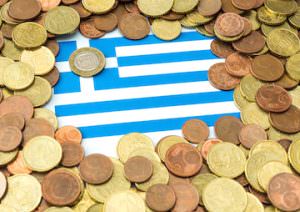The Battle Over Student Debt Relief
Will the Roberts Court overrule Biden’s signature executive action? The ball and chain of student loan debt / Illustration by Jeff Sanjaya
The ball and chain of student loan debt / Illustration by Jeff Sanjaya
Today, the Supreme Court heard cases challenging the Biden administration’s $400 billion student loan debt forgiveness plan. Six Republican-dominated states — Nebraska, Missouri, Arkansas, Iowa, Kansas, and South Carolina — and two individuals have sued to stop the plan.
According to the New York Times, Chief Justice John Roberts expressed deep skepticism of the legality of Biden’s plan, indicating that the administration, “had violated separation-of-powers principles by acting without sufficiently explicit congressional authorization to undertake one of the most ambitious and expensive executive actions in the nation’s history.”
Roberts, along with the other five members of the Court’s conservative majority, invoked the “major questions” doctrine, which requires Congress to authorize government initiatives with major political or economic consequences.
Over at The Nation, Natalia Abrams and Cody Hounanian’s examine the politics and legality of Biden’s executive action in “The Student Debt Cancellation Movement Is About to Face Its Toughest Fight Yet,”
Last year, President Joe Biden used his authority—as defined by the HEROES Act of 2003—to cancel up to $20,000 in federal student loan debt per borrower. The executive action was taken in response to the lingering health and economic impacts caused by Covid-19, and would help families and borrowers recover while closing racial disparities that widened during the pandemic. Right now, Americans owe nearly $1.8 trillion in student loan debt. On February 28, the Supreme Court will begin hearing oral arguments for two cases challenging this plan, Biden v. Nebraska and Department of Education v. Brown.
Let’s be clear: President Biden’s relief plan is legal and supported by 22 state attorneys general and dozens of legal experts. Research shows that student debt harms working- and middle-class families, prevents homeownership, delays family formation, and adds additional stress to families struggling to shoulder the impacts of the pandemic and inflation. Freeing Americans from the shackles of debt would put hundreds of dollars back into the pockets of families, grow the GDP by billions of dollars, and even add jobs to the economy.
But despite the obvious benefits of President Biden’s plan, these two Supreme Court cases—one led by an organization tied to the billionaire founder of Home Depot and the other by partisan state officials—are a serious threat to student debt relief. If the challenges are successful and the court blocks the president’s student debt cancellation plan, the crisis will continue to burden millions of Americans.
Read the complete article at The Nation.
Your support matters…Independent journalism is under threat and overshadowed by heavily funded mainstream media.
You can help level the playing field. Become a member.
Your tax-deductible contribution keeps us digging beneath the headlines to give you thought-provoking, investigative reporting and analysis that unearths what's really happening- without compromise.
Give today to support our courageous, independent journalists.



You need to be a supporter to comment.
There are currently no responses to this article.
Be the first to respond.